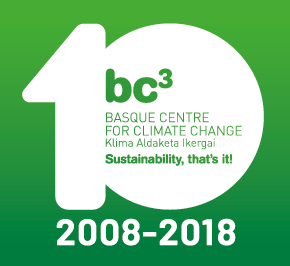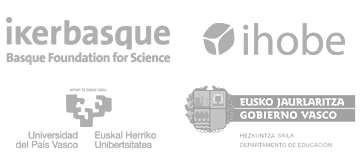 BC3 promotes a lot of external collaboration. You, for example, are now working with the Grantham Research Institute on Climate Change at the London School of Economics. How has this process been for you?
BC3 promotes a lot of external collaboration. You, for example, are now working with the Grantham Research Institute on Climate Change at the London School of Economics. How has this process been for you?
I was having a hard time looking for funding when I was granted a Basque Government’s scholarship, so it was the best Christmas gift ever! It represented a great opportunity to focus on my own research at the Grantham Research Institute, an outstanding centre in climate change research. It was challenging to get out of my comfort zone and make family arrangements, but overall working at the Grantham has been an amazing process. I have enjoyed the opportunity to meet and collaborate with top researchers, also to see first-hand how another research centre is organised. I find working in an atmosphere of challenging debate inspiring, and I particularly like the way science and policy approaches are combined, as well as the strong links of their research to actual decision-making processes at different scales. This is one of things I value most in science, that it gives us opportunities to network, collaborate and benchmark our performance against other leading researchers and institutions, helping us improve individually, but also collectively, as it can have a positive effect on our home institutions as well.
You mention difficulties of finding and securing funding…
I am quite sure that this is one of the key problems for most researchers. Scientific funding in Europe is extremely competitive, which is something good, but after the economic crisis and a reduction in national budgets for scientific programmes, excellent science fell out of funding schemes. For researchers, this highly-difficult funding environment adds to the temporary nature of contracts (linked to funding schemes or scientific projects). And we shouldn’t forget the huge amount of time that we devote to prepare research proposals, rather than to develop actual science. Having access mid- to long-term funding schemes is fundamental to both, research centres and researchers.
On top of this, being a woman in science must have its own challenges…
Unfortunately, women face challenges in many professional fields. There is an increasing body of literature addressing the specific challenges of women in science, but I would say that the underlying factors are the same as in any other career, mainly gender bias and maternity, linked to life-work balance. I believe the problem has roots in how our society is organised, rather than being specific to a professional area. For example, Ikerbasque’s 2017 report showed that while there is about the same number of men and women in doctoral and predoctoral positions, this relationship diverges –quite strongly- in postdoctoral, senior or director positions. The first step to improve is to acknowledge there is a problem. I feel that in the last few years there is an increasing concern about guaranteeing equal opportunities to women, even though there is still much to be done. Pursuing gender equity needs to be an active policy of science organisations worldwide and, beyond statements, it needs to be translated into specific measures to guarantee equal opportunities.


